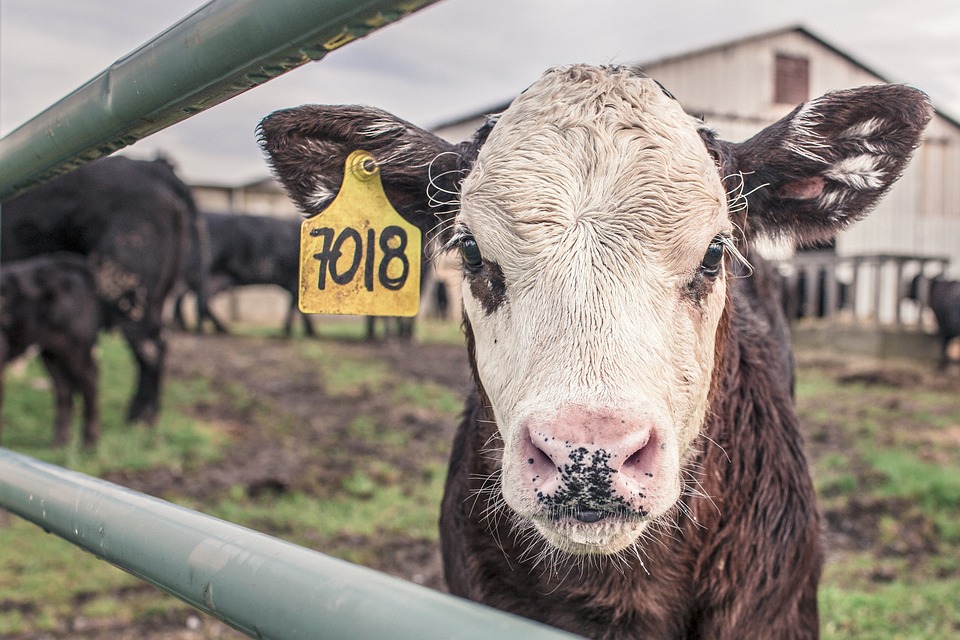The bird flu outbreak in dairy cows in the United States has prompted the creation of new, next-generation mRNA vaccines, similar to COVID-19 shots, currently being tested in animals and humans.
Next month, the USDA will begin evaluating a vaccine created by University of Pennsylvania researchers by administering it to calves. The theory is that if cow vaccination protects dairy workers, there would be fewer opportunities for the virus to infect people and change in ways that could lead to human-to-human transmission.
Meanwhile, the US Department of Health and Human Services has been speaking with manufacturers about potential mRNA flu vaccinations for humans, which, if necessary, could supplement millions of bird flu vaccine doses currently in the government’s possession.
“If there’s a pandemic, there’s going to be a huge demand for vaccine,” said Richard Webby, flu researcher at St. Jude Children’s Research Hospital in Memphis. “The more different (vaccine manufacturing) platforms that can respond to that, the better.”

Scientists Are Testing MRNA Vaccines To Protect Cows And People Against Bird Flu
Since 2020, the bird flu virus has spread to a wider range of animal species in several countries. It was discovered in dairy herds in the United States in March, although researchers believe it was present in cows as early as December. This week, the USDA revealed that it had been discovered in alpacas for the first time.
At least three people working on farms with infected cows were diagnosed with bird flu, albeit their symptoms were mild.
However, previous forms of the same H5N1 flu virus have been extremely fatal to people in other parts of the world. Officials are taking precautions in case the virus mutates and becomes more lethal or spreads more easily from person to person.
Most flu vaccinations have traditionally been manufactured using an egg-based technology that has been in use for over 70 years. It entails injecting a candidate virus into fertilized chicken eggs, which are then cultured for several days to allow the viruses to develop. Fluid from the eggs is extracted and utilized to make vaccines, with deceased or weakened viruses priming the immune system.
Officials say they already have two candidate vaccines for humans that appear to be well-matched to the avian flu virus seen in dairy animals in the United States. The Centers for Disease Control and Prevention developed the seed strain from the circulating avian flu virus.

Scientists Are Testing MRNA Vaccines To Protect Cows And People Against Bird Flu
Federal health experts say the government possesses hundreds of thousands of vaccine doses in pre-filled syringes and vials that could be distributed within weeks if necessary.
They also claim to have mass antigens capable of producing over 10 million additional doses, which could be packed, finished, and distributed in months. CSL Seqirus, a manufacturer of cell-based flu vaccine, stated this week that the government has engaged it to fill and finish around 4.8 million of those doses. Health officials in the United States stated last week that the work might be completed by late summer.
However, flu vaccine production lines are currently working on seasonal vaccinations for this fall, which would have to be delayed to produce millions of additional doses of bird flu vaccine. So, the government has taken a different, faster approach: the mRNA technology used to create the principal vaccinations against COVID-19.
Messenger RNA vaccines are created by combining a small part of the virus’s genetic material. The genetic blueprint instructs the body to produce a protein that helps build immunity.
Moderna Pharmaceuticals already has a bird flu mRNA vaccine that is in very early human development. Moderna stated, “we are in discussions with the US government on advancing our pandemic flu candidate.”
Similar work has been done at Pfizer. In December, company researchers administered an mRNA vaccine to human volunteers against a bird flu strain comparable to—but not identical to—the one seen in cows. Since then, researchers conducted a lab trial in which blood samples from those participants were exposed to the strain found on dairy farms and discovered “notable increases in antibody responses,” according to Pfizer.
Penn immunologist Scott Hensley developed the experimental doses of the cow vaccine in collaboration with mRNA pioneer and Nobel laureate Drew Weissman. Hensley stated that the vaccination is identical to the Moderna one for humans.
In preliminary tests, mice and ferrets exhibited substantial avian flu virus-fighting antibodies following immunization.
In another experiment, researchers vaccinated one set of ferrets and then purposely infected them, comparing the results to ferrets who had not been vaccinated. Hensley stated that all vaccinated animals lived, but the unvaccinated did not.

Scientists Are Testing MRNA Vaccines To Protect Cows And People Against Bird Flu
“The vaccine was really successful,” said Webby, whose lab collaborated with Hensley last year.
The cow study will resemble the preliminary testing conducted on smaller animals. The objective is to vaccinate roughly ten calves, half with one dose and half with another. Then, their blood will be collected and tested to determine how many avian flu-fighting antibodies were created.
According to Hensley, the USDA study will need to first find the appropriate dose for such a huge animal before examining whether it protects them like it did smaller animals.
What “scares me the most is the amount of interaction between cattle and humans,” Hensley stated.
“We’re not talking about an animal that lives on a mountain top,” he stated. “If this was a bobcat outbreak I’d feel bad for the bobcats, but that’s not a big human risk.”
If a vaccine reduces the amount of virus in the cow, “then eventually we reduce the chance that a mutant virus that spreads in humans will emerge,” he explained.
SOURCE – (AP)









